EVOL EVOLUTION OF SELF LOVE
2
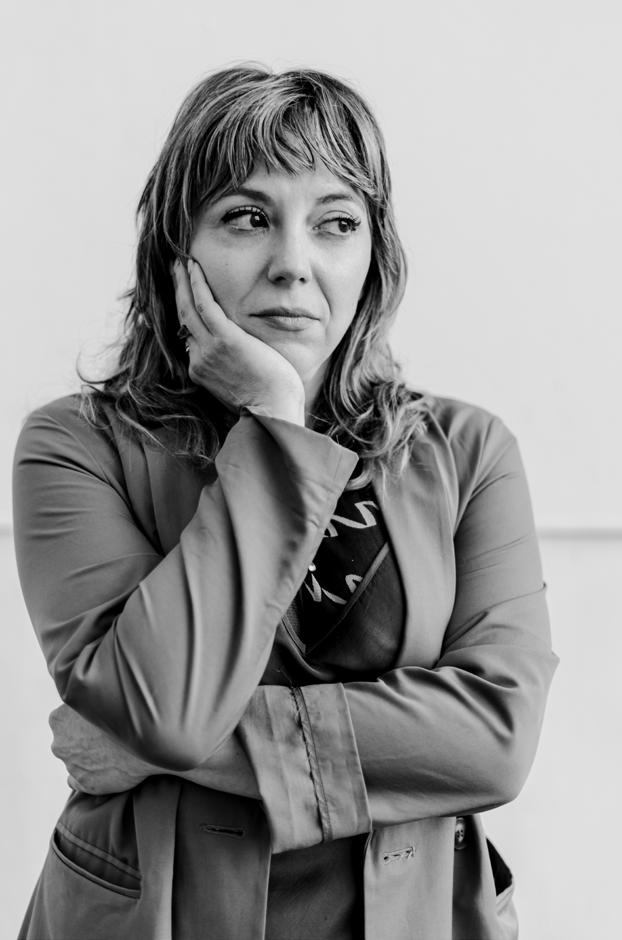

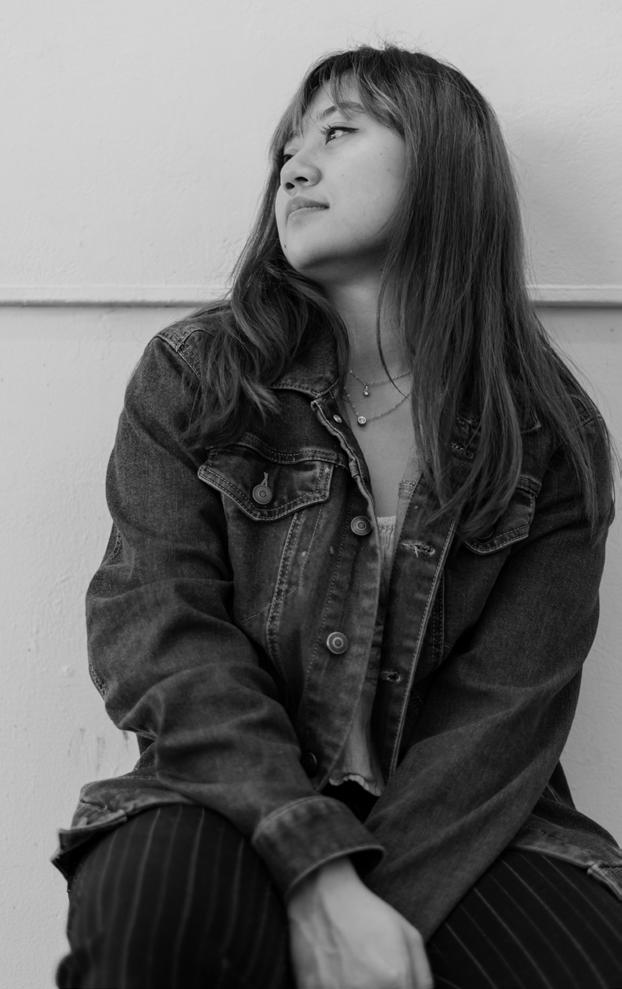
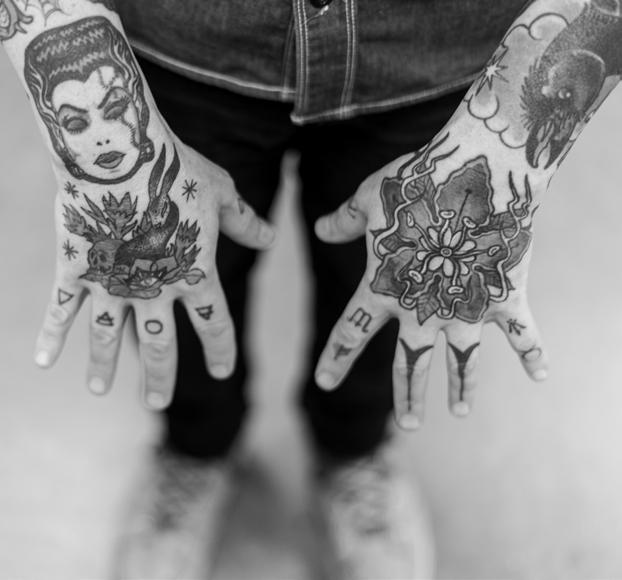
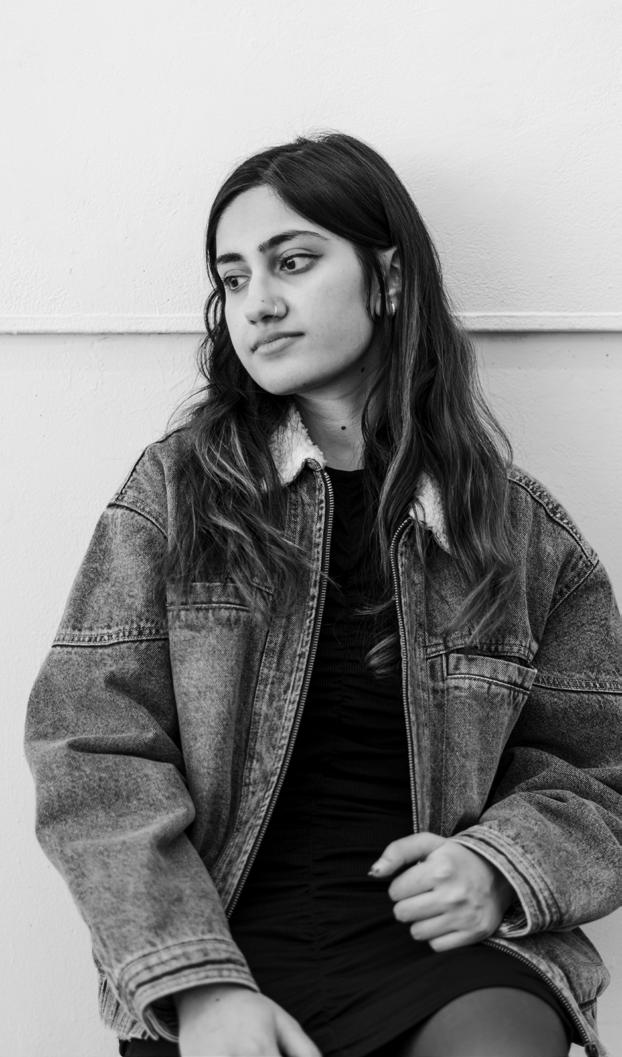
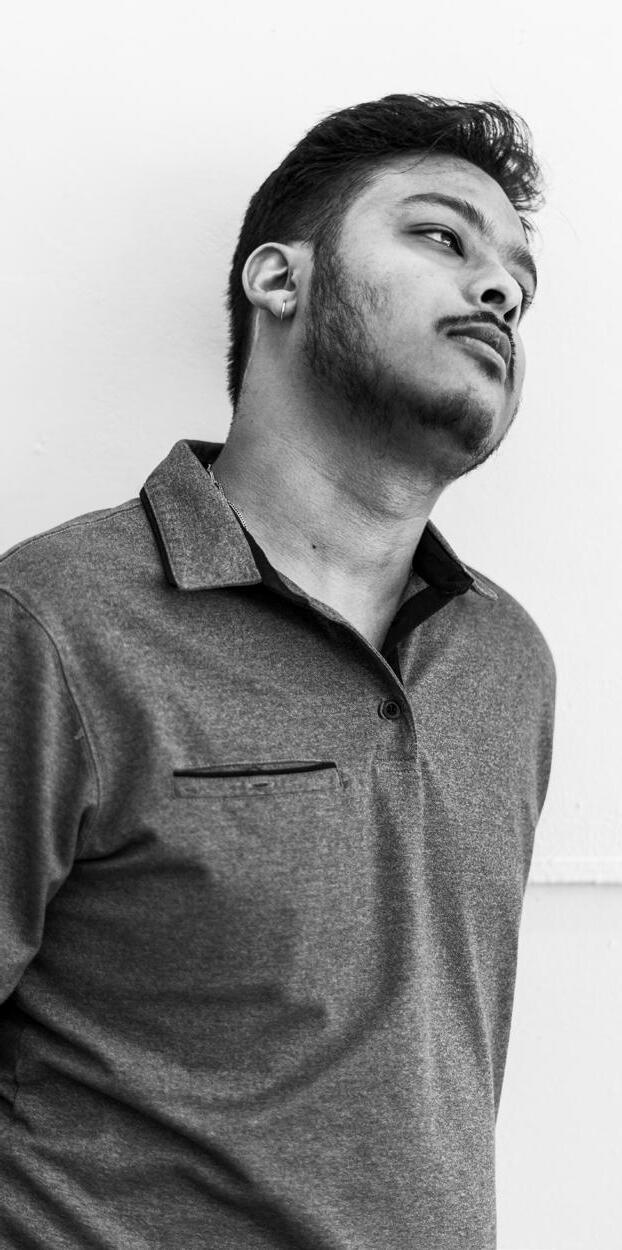

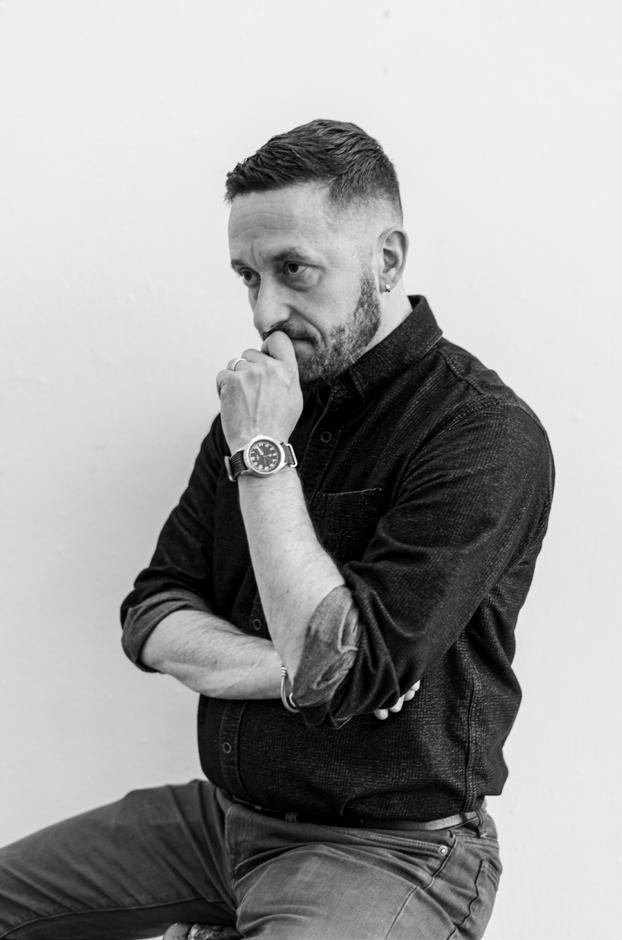
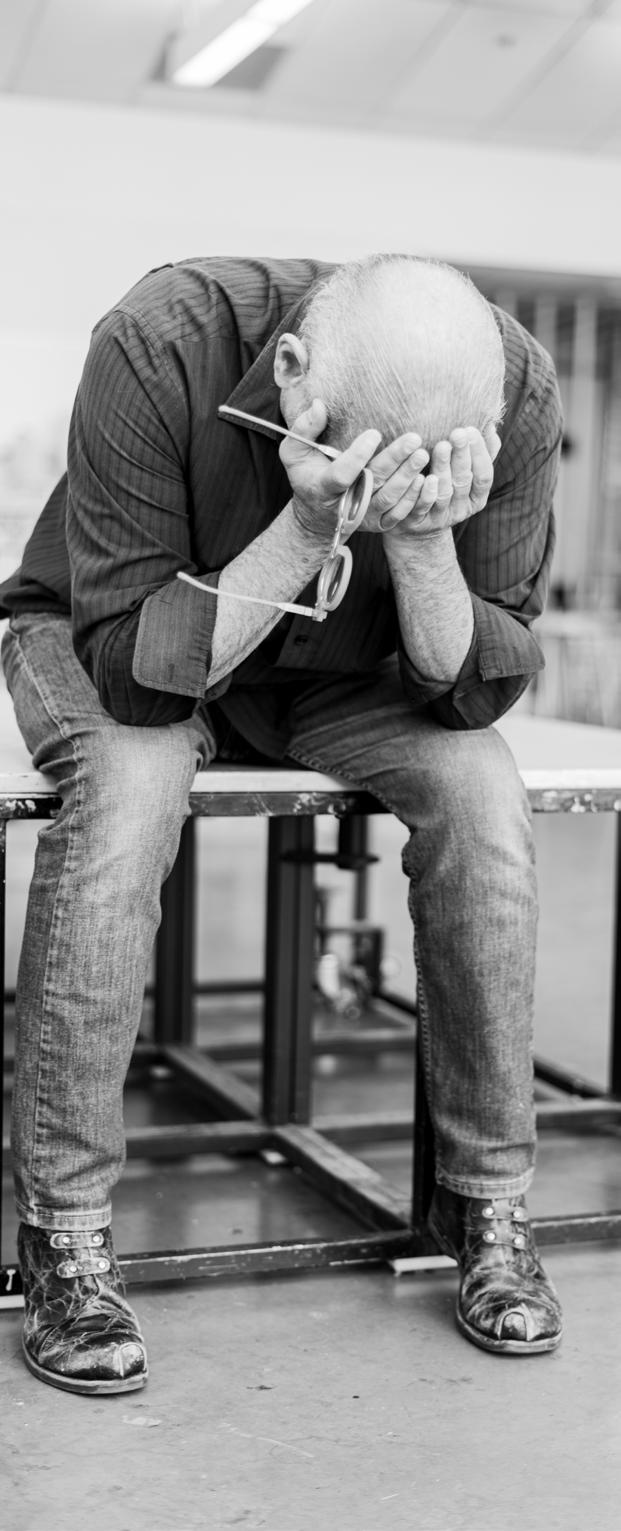
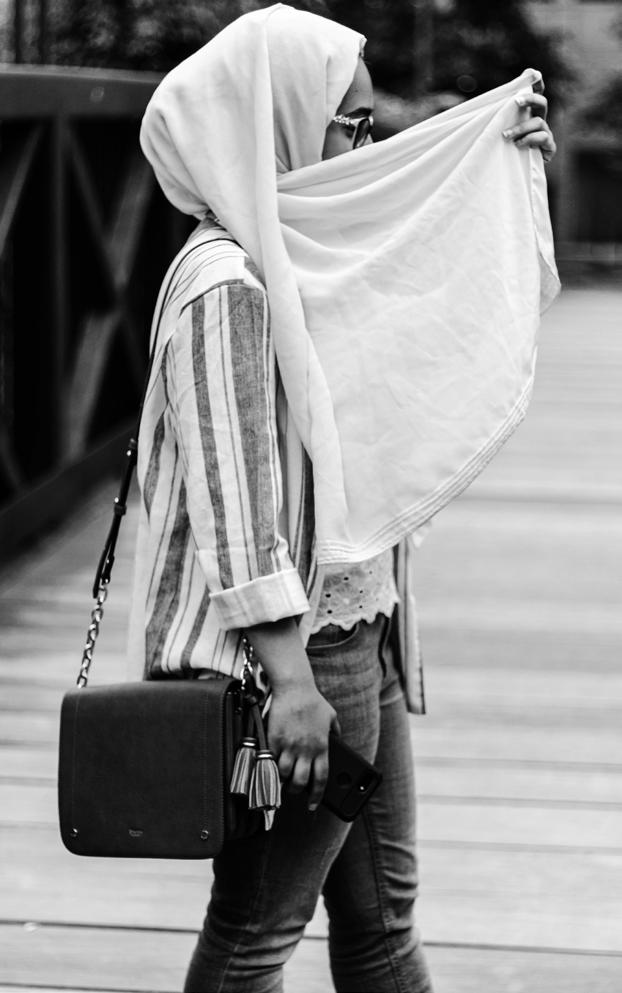
Table of
Contents
5
09. ALWIN THOMAS
18. MARCELLA MACALALAG
27. MIKE RAY
36. SCOTT LASEROW
45. RAYYANA ALKEBSI
54. ALINA LADYZHENSKY
63. SANA KEWALRAMANI
72. SEAN MCCABE
6 07.
PREFACE
PREFACE
EVOL a term derived from “LOVE” spelled backwards, also encapsulates the essence of “evolvers,” symbolizing the journey towards the evolution of self-love. After a conversation with my professor, Sean McCabe, I was inspired to create this book, who suggested combining my struggles and growth through mental health with my other passions, like photography, maintaining a balanced life, and being present in the moment.
Within these pages, you will find the raw, unfiltered stories of individuals who have navigated the depths of mental health struggles, emerging stronger and more empowered. This book is not just a collection of stories but a beacon of hope and understanding. It aims to inform, educate, and assure you that you are not alone in your struggles, even when it feels like you are against the world.
In my book, the use of red symbolizes life’s contrasts—it represents both pain and vitality, blood and love. The black and gray, on the other hand, were chosen to reflect how the world appeared to me during my darkest times. Gray, in particular, represents that ambiguous space where things are not black or white but just stuck in between. The gray area. It was a complex and uneasy place to be, where it was difficult to categorize things as good or bad. This book uses gray for the body copy as a visual transition from darkness to light, mirroring the journey of self-acceptance and evolution.
Through my work, I aim to add depth to a seemingly straightforward perspective and taboo topic, promoting themes of self-acceptance and evolution. As you delve into the book, you’ll notice two images accompanying each story: a black-and-white image and a color image. The black-and-white image represents the stark reality of the struggles. In contrast, the color image symbolizes the hope and beauty in the journey toward self-acceptance.
I invite you to embrace the beauty of vulnerability and embark on a journey towards self-discovery and acceptance.
8
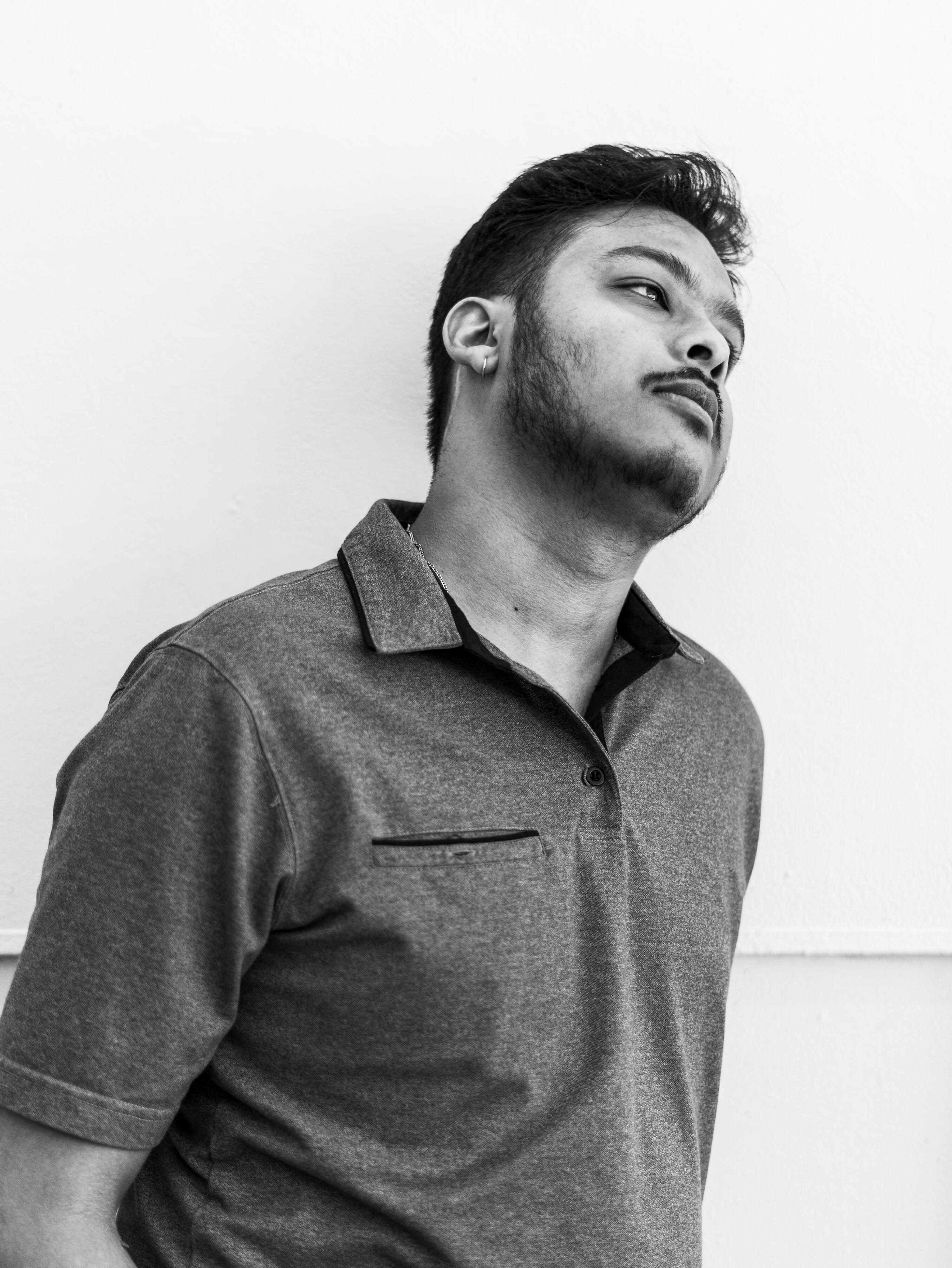
Alwin Thomas
Self-love is about being kind, gentle, and compassionate towards ourselves while acknowledging our flaws. It’s important to treat ourselves with the same kindness and respect that we would offer to a dear friend.
All that philosophical talk aside...
I used to think that self-love was only about basic self-care habits, but I learned that was not the case the hard way by being burnt out all the time and not having any time for myself to do my own work or to have my own me time. I was far too kind enough that I always took more than I could handle and had to tough it out. Then, I finally understood that it goes much deeper than that. It’s about setting boundaries, respecting ourselves, and not allowing others to exploit or disrespect us.
Remember, there is no one-sizefits-all approach to self-love. It’s a personal journey that evolves as we grow and change.
SELF LOVE
Iwas born and raised in India until I was 15 before immigrating to the United States in 2015. The environment I grew up in was narrow-minded. Fitting into such a society was more complex than being the odd one out. So I did precisely that. Why? I felt like I wasn’t getting enough attention or that no one cared about me. On the other hand, my family has always been traditional and super religious. Hence, the concept of mental health was never in the picture or their dictionary.
My struggle for friendships was much more noticeable starting in 4th grade. In my head at that time, nothing was wrong. In school, many friends relied on me for help and favors. However, I soon realized that most of them were just using me. This continued until the 10th grade, and you would think that time flies, but not for me.
I experienced a lot of bullying and being left out by my classmates for years. I cried and begged to be included in their group. They even bullied me into doing things to be accepted and said I couldn’t hang out with them because of my financial situation.
I used to lie and steal money from my parents to fit in with my friends. They only accepted me when I had money, so I kept stealing. One day, I couldn’t steal anymore and was cast aside. Indian school systems and society make it hard to find new friends, as you’re typically with the same classmates from kindergarten through high school. I found it challenging to have a safe space to talk about my experiences. Even my parents were emotionally unavailable to me when I needed them. This is not to say they’re bad people - they just didn’t know how to provide
that support. I would be lying if I said I didn’t ever think about committing suicide. In fact, I thought about it quite a lot more than I can count, and at some point, I even picked up a knife to cut myself but didn’t have the guts to follow through with my plans.
I struggled to make close friends and often fought with my classmates to befriend them. In the midst of it all, I picked up
JOURNEY AND GROWTH
smoking , which affected me financially and health-wise. I later realized that my so-called friends were never genuinely interested in being good friends with me and only used me for their own amusement.
Moving to the US was a glimmer of hope for me, but adjusting to a new culture and dealing with
racism in high school was tough. It took time. I also learned that friendships and other things will come naturally rather than desperately searching for them.
At my first job, I made good friends who taught me a lot about work and life. However, my boss made me feel undervalued with racial comments. At my second job at my community college, my manager taught me about work-life balance. However, I still struggle with being a workaholic. I also met a fantastic person, my photography professor Mieke, whom I see as my mentor and helped me by giving me that safe space to talk freely. She inspired me to take photos and keep learning about photography to the point where it became my hobby. I could buy a camera with my own money.
Through photography, I met my best friend, Rayyana, and we often took photographs together. Later, I met Leslie from my design class, who became one of my best friends. We always kept each other accountable and supported each other despite our differences in emotional needs, family backgrounds, and interests. They were the only source of light that kept me going through some of my darkest times when I kept falling back into the void. The deeper I fell, the harder it was for me to climb back out of it. To top it off, I had severe anxiety to the point where I couldn’t even order my own food or ask for help outside of the people I knew. The only thing that helped me at that time was going to different parks with Rayyana, which helped me calm down. Being one with nature gave me a sense of peace and quietness. Whenever I went out, my friends would often order for me as I
12
was a nervous train wreck. But it didn’t stop me from spending time with my friends. The only limitation was no more than 3 people in a group setting.
I knew that being away from family was my only option to get the assistance I needed and start my life new while growing out of my comfort zone. Starting at a new place without anyone you know by your side is really tough mentally and emotionally. It took me time to adjust to adulthood responsibilities and independence.
When I started undergrad, working for the university as a student helped me make enough money to fend for myself. Luckily, the university had a psychiatrist for students in need, and I could meet my new doctor. With some savings I had, I got the medication I was prescribed. As everyone knows, the US healthcare system is not great! Needless to say, I didn’t have any health insurance, nor could I afford it. Once I started the medication, it felt super weird to be feeling normal again. I felt like a new person because I normalized how I had felt before...
I also got the opportunity to meet some good people. Few became friends, and the rest became acquaintances. Furthermore, I got my first tattoo with them. In the midst of all this, I met someone special. Despite my family’s disapproval, I’m striving for the best future with her. She helped me grow and understand myself better and encouraged me to love myself more. I plan to continue to grow and strive forward to become a better person to myself and the people around me! Currently, I take meds, and one day, my goal is not to need them anymore.
I’m a very technical person, and I don’t like to rewrite history or answer hypothetical questions because they do not reflect
reality. However, if I could go back in time, I would advise myself that
no friendship is
worth
sacrificing self-respect for. Additionally, I would try to convince myself that suicide is not a solution to any problem, as it only causes more sadness and loss in the lives of people who love and care for you.
Reflection
13
How you see yourself is how the world sees you!

Self-reflection is a humbling process. It’s essential to find out why you think, say, and do certain things... then better yourself.
16
— Sonya Teclai
17
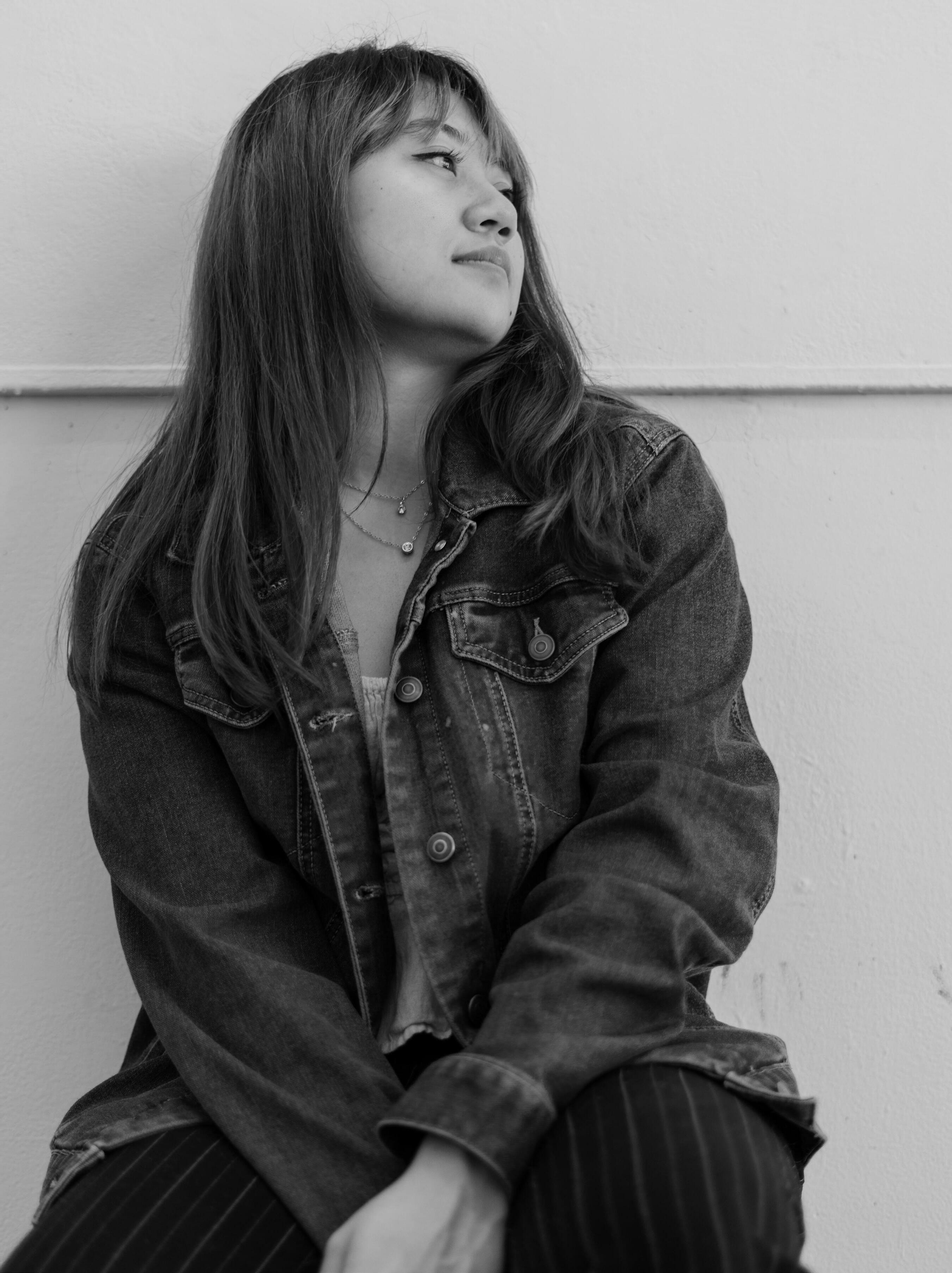
Marcella Macalalag
Self-love is the best practice of fully embracing yourself, flaws included, and then acknowledging your emotions and feelings. It entails prioritizing your personal well-being by seeking help when needed and treating yourself with kindness and respect.
Embracing self-love involves forgiving yourself and recognizing the progress and effort made while pursuing your interests and goals. Additionally, it means surrounding yourself with supportive individuals who uplift and encourage growth.
SELF LOVE
Reflecting on the past few years demanded considerable time and introspection. If you asked those close to me if I’d changed, hell YEAH, I changed a lot. As a young teen, I was a free-spirited, energetic people-pleaser. My friends played a huge role in shaping my identity, and I found myself becoming more extroverted and authentic when I was around them. It was within these friendships that I learned to value deep, authentic connections— ones where dreams are shared, leaving us feeling entirely accepted and understood.
Additionally, I was a hopeless romantic, primarily influenced by watching Korean dramas and shojo anime growing up. This gave me unrealistic expectations about love. Back then, I would say my trust came easily, perhaps too easily. I allowed myself to be blinded by hope, convincing myself of things I knew deep down weren’t true. This led me to put myself in vulnerable situations, leaving me feeling blindsided and unable to speak up in the moment. As a result, I felt used and taken advantage of. I felt like my innocence and idealized version of love were stripped away in a matter of minutes. Even now, I’m still mad at myself for being dumb and allowing that to happen.
I reassured myself that things could only get better from here. It didn’t. During my initial years in college, I experienced a falling out with my best friend. She wasn’t just a friend; she was my twin flame, my pretend cousin since elementary school, the person who got me out of my shell. However, various issues began to arise, causing my focus and grades to suffer. Eventually, I reached a point where I had to prioritize my own well-being and future. Naturally, this decision came at a cost, and it felt like a significant part of my identity departed with her. At the time, I was able to distract myself with my college friends, clubs, and school work. But when summer arrived, I found myself completely unrecognizable.
Following the significant loss of trust and friendship, I created walls and kept everything to myself. I became hypersensitive, prone to tears over the most minor issues. My anxiety reached an all-time high, and I had no control over my emotions. I felt like I had regressed to
JOURNEY AND GROWTH
my childhood self. My family didn’t understand and would tell me they missed the old me or that college made me soft. It hurt to hear that. When I returned to school, I prevented myself from getting closer to others in fear of rejection of indifference. I craved those deep meaningful relationships, but that takes time, and I needed it right then and there. Deep down, I knew that no one could read that level of friendship I had with my best friend, primarily because I never allowed anyone to get that close.
My boyfriend became the sole person I confided in about my emotions. Despite the distance between us, he was there for me every day. He listened attentively, absorbed all the heat of my struggles, and did his best to comfort me. To this day, I’m still amazed by his unwavering patience with me. As it became apparent that things weren’t improving, he suggested I get therapy. Initially, I resisted the idea out of fear of the process because facing it would make everything too real. However, I didn’t want to lie to myself again and say that I don’t need it. I just wanted to be normal again. Truthfully, my main motivation for seeking therapy wasn’t for myself but for him. My boyfriend has been and continues to be the person I’ve always longed for. He reignited my belief in that childhood idealization of love, and I couldn’t bear the thought of losing someone like that.
I cried during every session for the first few months. At the time, I was a perfectionist, filling my schedule to the brim with various clubs and responsibilities to distract myself from confronting these emotions. My therapist assured me that it’s okay to feel these emotions and encouraged me to let them out. Together, we engaged in extensive self-reflection and processing. I learned more about myself and different ways of coping
21
whenever I felt overwhelmed, anxious, or lonely. It was definitely a work in progress but I discovered how to not stress over things beyond my control and how to let go of unrealistic expectations in my interactions with others . I also came to realize that I am in control of my emotions.
If I were to compare myself then and now, I’d be unrecognizable—in a positive way this time. While my workload remains similar, I’ve learned to approach it one day at a time. If you had asked my sophomore self if I could take on the role of president in a club, I would’ve said no way. Yet, despite the stress, I embraced the challenge. I’ve found myself in tough situations where advocating for myself was necessary, regardless of others’ perceptions. I’ve become more relaxed and prioritize self-care. This year, it feels like everything is falling into place. I’ve made genuine connections with people whom I trust and managed to balance everything. Despite the challenges, I’m grateful for where I am today, thanks to the support of those who stood by me through it all.
The past was challenging, but it was necessary for me to grow and become the person I am today. I would tell myself to not over-analyze and take things personally. Maybe take a yoga class to practice breathing and meditation. Also to live in the moment and appreciate the opportunities and small things in life.
Workin-
22
progress
You only have so much time in your life, and you’re not getting any younger. Make sure to invest your time wisely in meaningful pursuits and relationships.

Be gentle with yourself. You are doing the best you can.
25
— Paulo Coelho
26
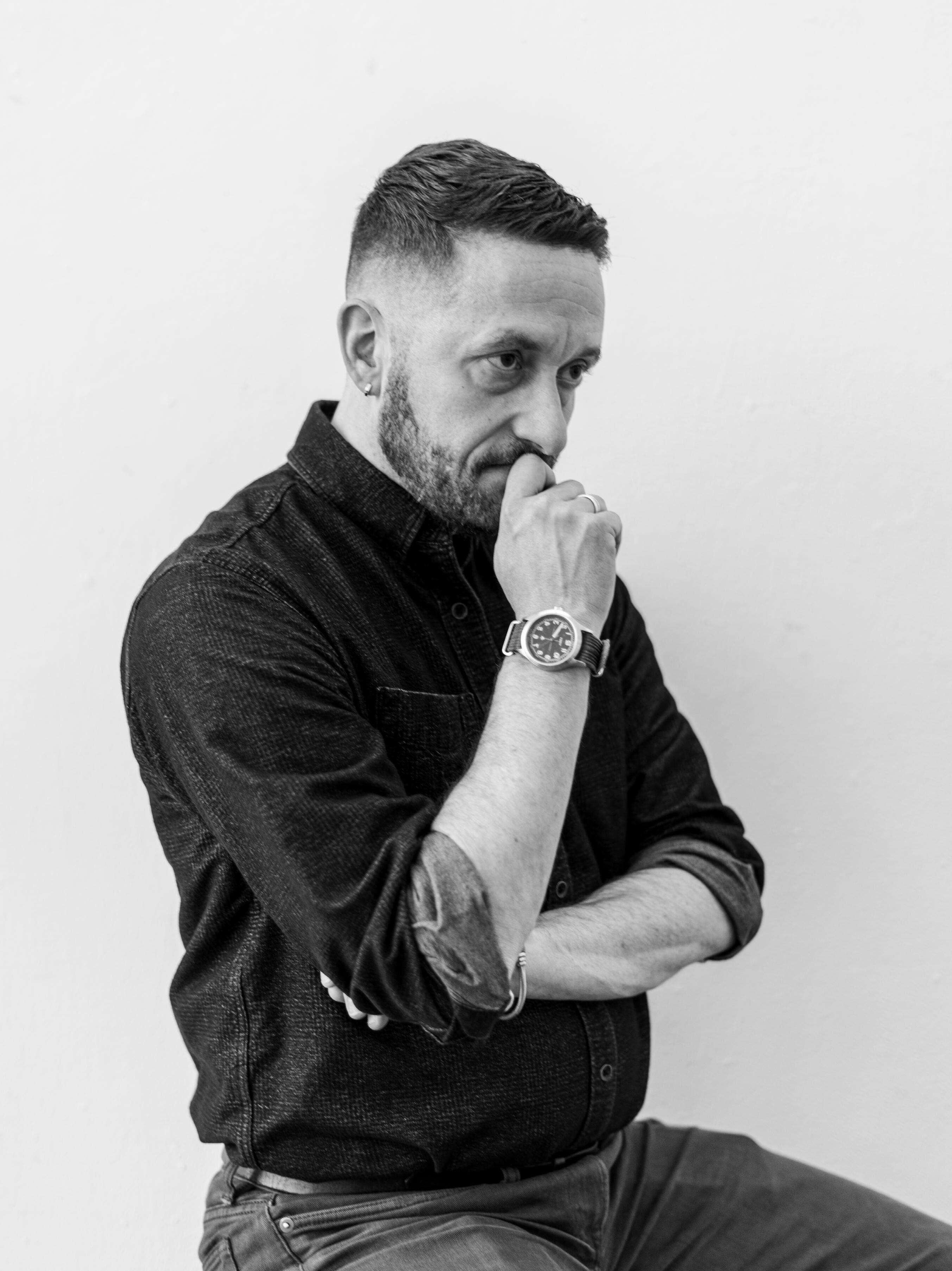
Mike Ray
Self-love is about being comfortable and confident in your skin. It’s about letting go of other people’s expectations or judgments, embracing your strengths, and accepting (and sometimes celebrating) your flaws.
SELF LOVE
Accepting my queer identity and gayness took some time for me. I fought hard to suppress those feelings in my formative years and didn’t explore that part of my sexuality until I was a young adult. I used to think that being gay was going to have such a negative impact on my adult life, but time has proven the opposite. This probably came from lack of exposure and representation of queer humans, both in my life and in popular culture. I didn’t have many reference points of what it meant to be gay or queer, and the few that I did were often synonymous with either violence or disease. The 90s were a turbulent time in history for gay men, with the AIDS epidemic still very top of mind. Gay bashing was common, and young men who flaunted anything resembling feminine qualities (myself included) were ridiculed or tormented. Growing up in Brooklyn, guys were meant to have a tough exterior and edge. Looking back, I appreciate the edge I’ve carried with me but resent having to put on a front to feign a more masculine presence all the time. All of that code switching is exhausting.
Another element that affected my journey towards accepting my queer identity was having a father who was also homosexual. My parents divorced when I was really young, so I’ve only known them as separated adults and humans. I had a very complicated relationship with my father and found out about his gay identity at a young age. He disclosed his sexuality to me earlier than I could have quite understood it, potentially as a way to relate to me as he must have seen the potential for me to eventually embark on a similar journey. Even after my father came out of the closet, he was still living a very guarded and carefully exposed life. He wouldn’t
JOURNEY AND GROWTH
talk about his partners or lovers freely, and everything about his gay identity was shrouded in secrecy. Nothing about his experience made it seem desirable to be a part of that community. When I was old enough to come out to him and start sharing that part of my life, I thought a barrier would be broken through and that we’d have so much more to relate to one another. In many ways it turned out to be the opposite. I introduced my father to multiple boyfriends over the years, and he would always refer to them in generational code: ‘How’s your friend?’ With one boyfriend in particular, I started to make it a point to correct him every time we spoke. I’d remind him that Jhon was not just a friend, but a lover and partner. I explained that it hurt my feelings when he didn’t acknowledge him in that way. Eventually I realized this was not something I could change, which saddened me.
I think my father may have found it difficult to see how much easier it was for me to be so open about my queer lifestyle. He attended my wedding, and it was bittersweet to have him there. I wanted him to bring one of his ‘friends’, but he insisted on attending solo. To this day I’ll never know if that was because he hadn’t found a partner that he wanted to share that moment with, or if he was ashamed to be seen with that person, or if he just loved life as a slutty gay bachelor. This is another reason why I like to be open and
honest about that part of my life. I have to learn from his tribulations.
Being part of the queer community has enriched me in more ways than I could have ever imagined. It’s become a bit of an adventure that gets more exciting as I expand my social circle. There is a distinct intimacy and consistent support system that I have with my queer friends and allies. Many of the gay and queer humans that I know have gone through some version of a personal renaissance. Regardless of where you land on the spectrum of masculine or feminine, there is a rebirth that happens when you accept the body you’re in and the internal desires that come with it. When you meet another person who has been through a similar journey, there is an immediate recognition of feeling seen and heard, without having to say a damn word. The non-verbal communication between queer humans is its own language, and I love sharing those moments with close friends and strangers. IYKYK. It’s a chosen family and one that I could not be prouder to be a part of.
I’m excited about the future. We’re navigating a really tricky time and the queer community is under various modes of attack. It fascinates me that there is this regression, but the optimist in me feels that those trying to repress us have no idea how much strength we have continued to build as a community, and they will not succeed in their attempts to tear us apart.
30
Comfort
I’m not a huge fan of trying to rewrite history. What happened in the past has made me who I am today, and I’m feeling great about where that has propelled me. That said, if I could do one thing differently, it would be challenging gender norms at an earlier age. I’ve spent much of my adult life working in/admiring fashion and expression through clothing and accessories. It’s been inspiring to see the blurred lines between what is considered masculine and feminine and the freedom that all genders are allowed to play with, meld, and bend these binary concepts. I feel fortunate to be able to be more playful and fluid with that expression now.
31
Embrace your strengths and celebrate your flaws.

You carry so much love in your heart, give some to yourself.
34
35
— R.Z
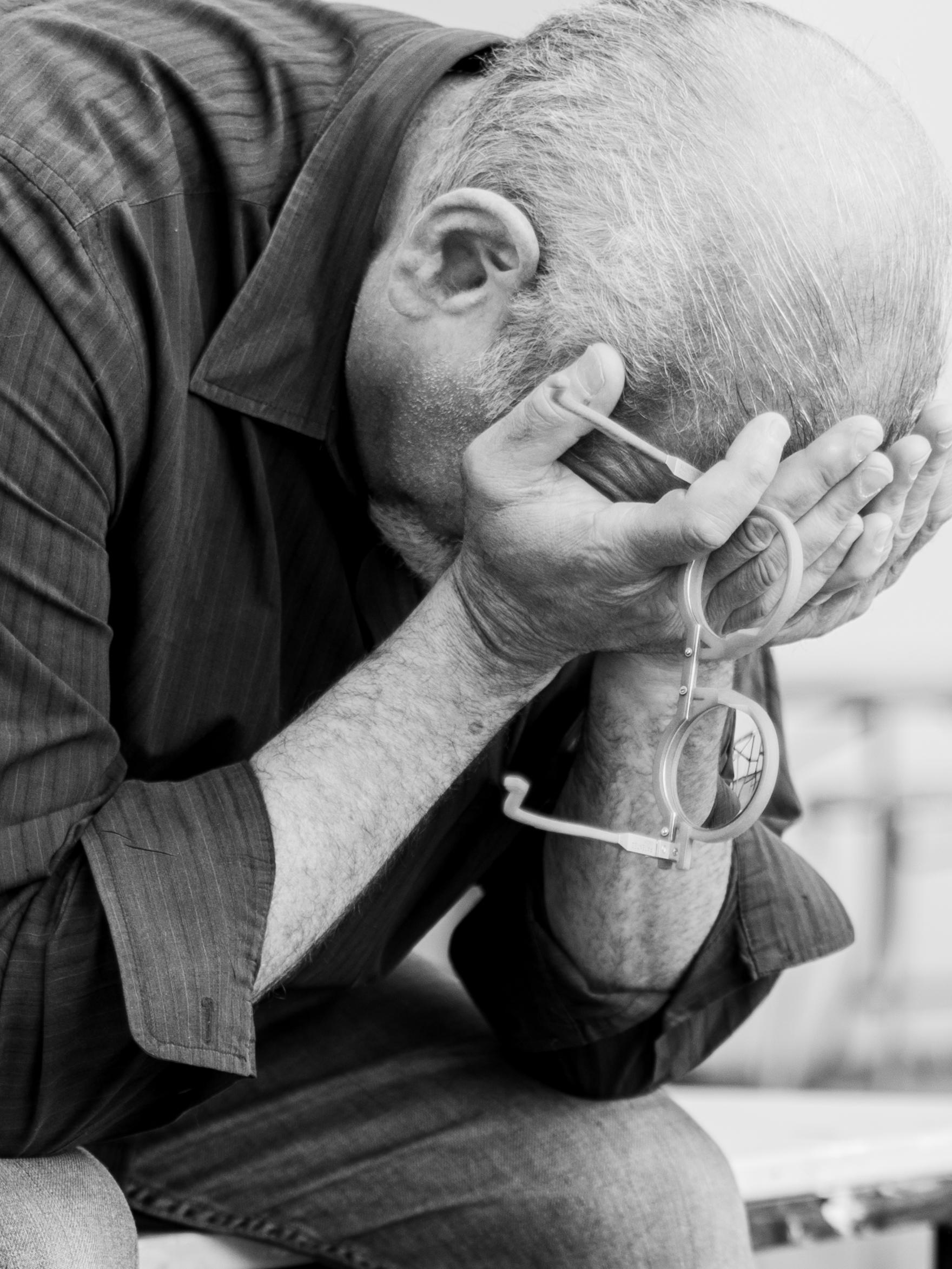

Scott Laserow
Accepting yourself for who you are. It doesn’t hold any meaning to me as I don’t accept myself; in fact, I don’t like myself very much.
SELF
LOVE
Iwas born with ADHD and was a handful from the start. At 11 months, I could escape my crib and go downstairs. This often happened in the middle of the night, and my parents would find me everywhere. They were told to take me out of the crib and put me in a bed. My father would have to lock me into my room before bed to ensure my safety.
I started nursery school at three years of age, I believe, because my mother couldn’t deal with me all day long. As it turns out, she also had mental health issues. You have to remember it was the 1960s, and no one knew much about mental health; there was no information about ADHD. I was referred to as a “wild child.” I started kindergarten at age four and didn’t turn five until November. My kindergarten teacher, Mrs. Johnson, was a mean and horrible woman who dealt with me hyperactive by beating me, pointing at me, and telling the other students that I was a bad child and not to be like me. Needless to say, I didn’t have my first friend until I was in 10th grade. During my informative years, I was spat on and teased relentlessly by my peers.
Between my ADHD and being a total outcast, my grades suffered immensely. It was recommended to my parents that I see a child psychologist. Over four years and three different child
psychologists, the prognosis was I was highly intelligent but learning disabled. My parents were told that I wasn’t college material and that they should send me to a boarding school or, at the very least, a tech school. This affected me so much that by the time I was in high school, I learned how to disappear into the background and would immediately head home once the final bell rang. No one really knew me. These events infected me with extreme social anxiety, and I had my first fullblown anxiety attack at the age of 14. They were so extreme to the point where I hallucinated.
Once I became suicidal in my early 20s, my mother (who attempted suicide twice in her life) suggested I see her Psychiatrist. This was the first time I was medicated for my social anxiety. I have been medicated ever since. From that point on, things started to turn around in my life. And for quite a while, I was handling my mental health exceptionally well. Excepting who I was and embracing my craziness saved me for a while.
In 2018, a major international publisher asked me to write a book. This sounds like a great thing. I accepted, and although I completed a very successful book, it was the beginning of my mental health breakdown. The pressure of producing something with your name literally on it proved
JOURNEY AND GROWTH
a bit too much for me, and I was under constant stress and, at times, depressed for over two years. Once the book was completed, both my patients took ill and passed seven months apart. I wasn’t able to mourn my parents because I had to spend over a year setting their state. As it turned out, all of this broke me. This is when I discovered I have a PTSD called dissociative disorder, specifically depersonalization. In short, I leave my body, and the world around me seems like a dream, and I’m watching a movie within it. Although I am aware of the cause of my PTSD, it is not necessary for my story.
I still take medication for my mental health, and I am under a Psychiatrist’s care.
Acceptance
I don’t think there is anything I could have done differently. I was a child, there was no information on ADHD, and certainly, there wasn’t any medication.
40
When I have an anxiety attack, I immediately go outside and repeat to myself,” This will end soon. Stay tough,” over and over again. If I have a minor attack, I tap my fingers. I believe these distractions help the attack end more quickly as I’m not obsessing about the attack because my brain is occupied with my chant or finger tapping.






















